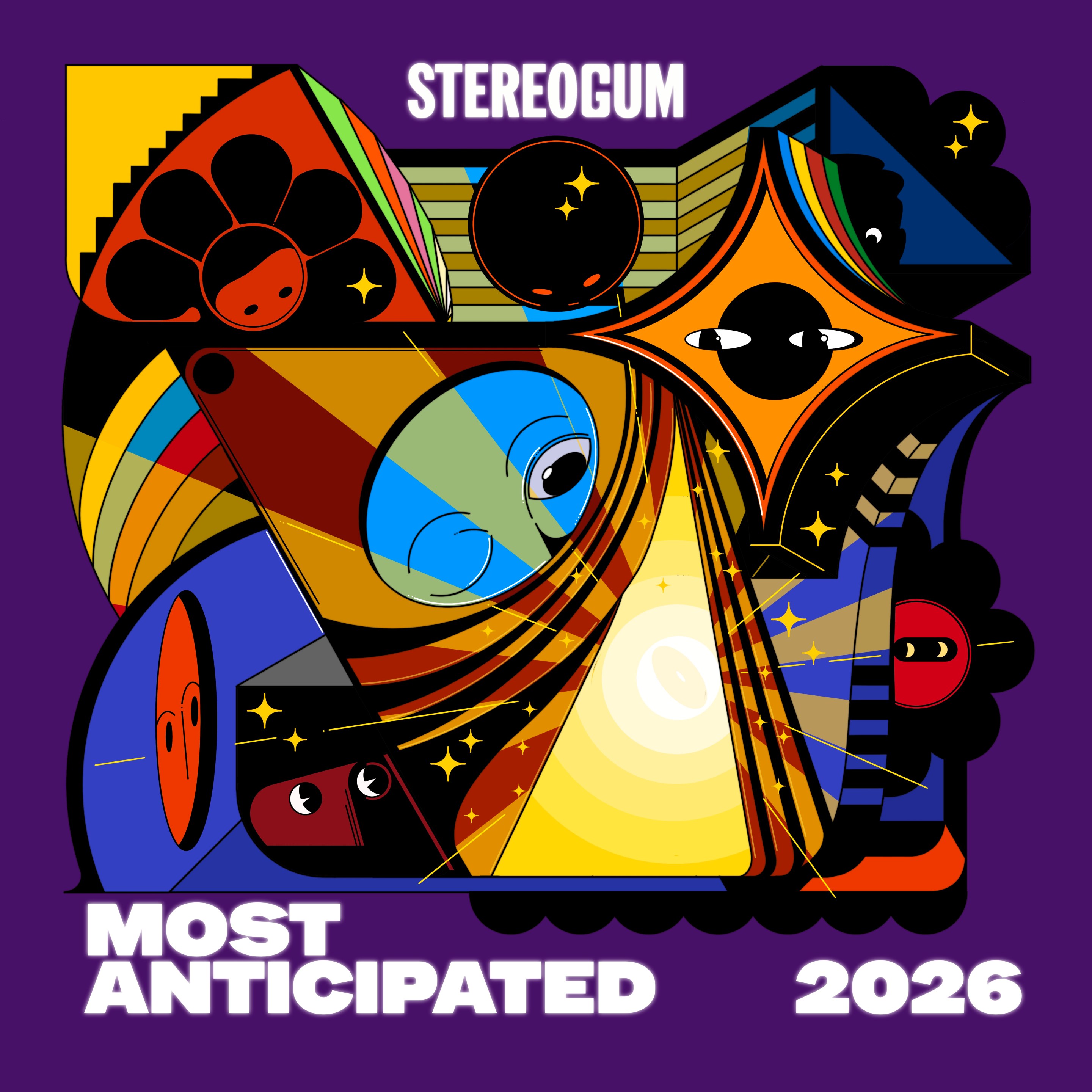Every week the Stereogum staff chooses the five best new songs of the week (the eligibility period begins and ends Thursdays right before midnight). We've kicked off a partnership with TIDAL, the global music streaming service that offers the highest sound quality and Fan-Centered Royalties. You'll find our new Favorite New Music playlist updated weekly here on TIDAL.
TIDAL's HiFi tiers offer over 80M+ songs and 350k+ videos in HD, an ad-free experience, and offline listening with unlimited skips. The HiFi Plus plan includes Innovative Audio Formats up to 9216 kbps (Master Quality audio, Dolby Atmos, Sony 360 Reality Audio, HiFi) and Fan-Centered Royalties where the artists you stream get paid based on your streaming habits.
If you don't have an account you can get 30 days free by signing up for TIDAL HiFi here or TIDAL HiFi Plus here.
Makaya McCraven - "Seventh String"
On paper, the idea of a song being polytemporal — i.e., having multiple tempos occurring simultaneously — seems chaotic. That's the approach Makaya McCraven opted for on his long-gestating, forthcoming album In These Times. This is an album where McCraven is trying to parse certain conflicts, piecing through a multinational identity. On "Seventh String," you can hear that polytemporal approach as McCraven trying to let opposing thoughts and ideas sit together in unison. There is a roiling tension, the way the song's percussion is a constant frantic ripple always threatening to turn into a freight train. But instead, "Seventh String" becomes a floating, transporting piece of music, those tumbling drums underpinning gentle guitar cascades and weaving woodwinds. Far from chaos, it becomes the sound of embracing complications and oppositions, and locating a harmony in the center of it all. —Ryan
Rachika Nayar - "Heaven Come Crashing" (Feat. Maria BC)
The Brooklyn-based experimental electronic composer Rachika Nayar spent last year's debut album Our Hands Against The Dusk picking at and pulling apart the guitar, an instrument she dug even further into on its companion Fragments EP. "Heaven Come Crashing," the lead single and title track from her upcoming sophomore album, spends its first half in tendrily guitar mode, with some ghostly intoning courtesy of Maria BC, but it eventually breaks apart into a collision of synths that overflows with abundant glee. It reminds me a bit of the early 2010s, when projects like Elite Gymnastics and Ricky Eat Acid were building similarly transcendent moments out of haunting apparitions. Nayar pulls back from that maximalist expression in the last minute with a coda of celestial wandering that ties the whole track together and leaves the listener wanting even more. —James
Tove Lo - "True Romance"
"True Romance" is not your average lead single, but Tove Lo has always been her own kind of pop star. Loosely inspired by the cult classic movie of the same name, the song is essential just two swelling synth chords with the bass turned way up, topped off by all manner of electro-organic melody. Within this unexpected environment, we hear Tove's voice as a delicate flutter, a roaring fire, a digitally altered streak of neon, and more as she sings of her willingness to kill and to die for her lover. Her performance and the subtly dynamic arrangement are enough to compel for four solid minutes despite so little actually changing along the way. Sonically, it's a whole other world to retreat into when this one seems too tough. —Chris
Duke Deuce & Glorilla - "Just Say That"
When you hear that hammering piano riff, you already know what time it is. That piano was once part of the score for the 1941 movie Dangerous Moonlight, but future generations know it as the sound that incited DMX to growl about ripping your face to pieces on "What's My Name?" On "Just Say That," the piano adds deranged urgency while Duke Deuce and Glorilla, maybe the two most charismatic figures on a Memphis rap scene full of charismatic figures, chant about the importance of forthright communication. For Duke Deuce and Glorilla, the people who dance around subjects, who won't just come out and say what they mean, are cowards who are trying to avoid the glaring fact of their own inferiority. Duke Deuce and Glorilla will talk their shit without hesitation because they know that they're better. When that piano hits, it's hard to argue. —Tom
Beyoncé - "Break My Soul"
Since Beyoncé first debuted as a solo artist — we're talking all the way back in 2003 — we've heard a lot of Beyoncés. We've heard pop Beyoncé, R&B Beyoncé, hip-hop Beyoncé, folk Beyoncé, and even country Beyoncé. But '90s gay club Beyoncé?? Chef's kiss. As you've certainly heard by now, Beyoncé offers her take on bringback culture with "Break My Soul," which samples Robin S's 1993 house anthem "Show Me Love" and interpolates NOLA rapper Big Freedia's 2014 bounce song "Explode." Over it all is Beyoncé — pop's ultimate workhorse — growling lyrics about quitting your nine to five. I don't even care that this song is sung by a millionaire who technically never has to work another day in her life if she doesn't want to — my entire medicine cabinet can relate to the verse "Damn, they work me so damn hard/ Work by nine/ Then off past five/ And they work my nerves/ That's why I cannot sleep at night." I don't want to read anymore blogs about how to attain good sleep hygiene — late-stage capitalism is the reason for my chronic insomnia. But, I digress. Queen B is back and she's got a little bit of advice: Instead of "Get your fuckin' ass up and work," it's "Release ya anger/ Release ya mind" and have a little dancefloor catharsis while you're at it. —Rachel






